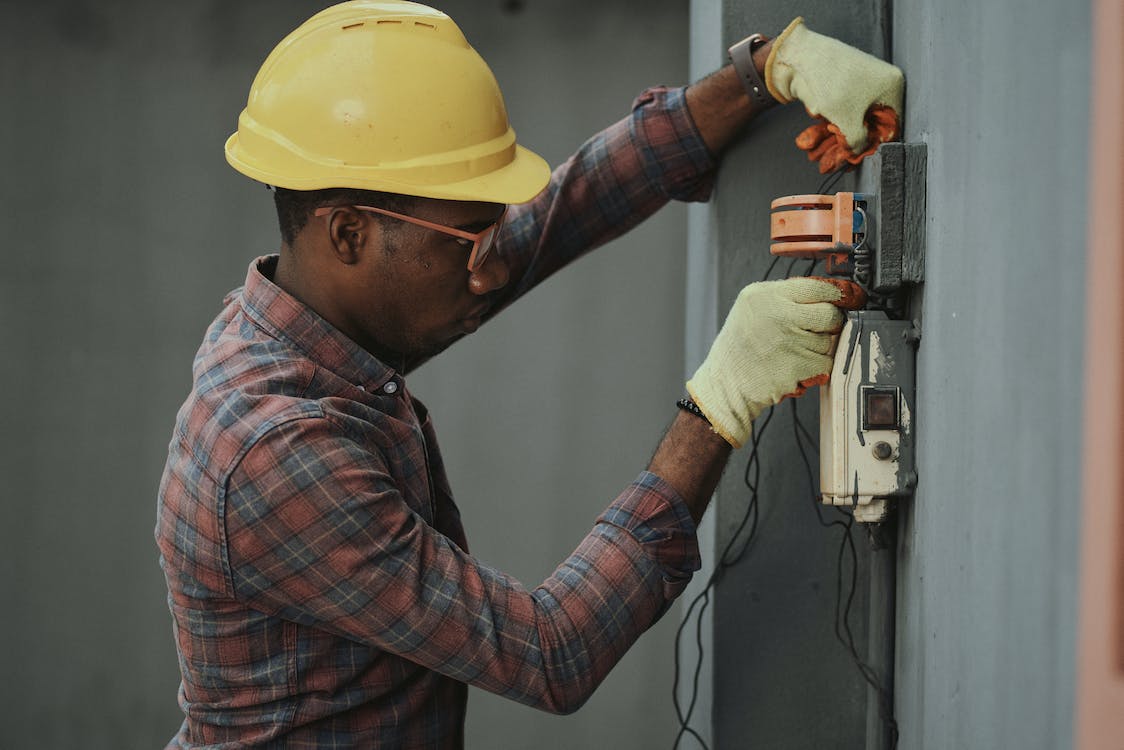Navigating electrical issues at home can be confusing, and sometimes quite dangerous. Understanding common problems and when to call in the experts is crucial for your safety.
In this article, we unravel some common electrical issues and their practical solutions.
Some Are Best Left For Expert Electricians
While some minor electrical issues might tempt you to fix them yourself, some cases are best left to professional electricians. This is particularly true if you’ve not undergone an electrician training program, received certification, and acquired substantial experience.
For example, troubleshooting tripped circuit breakers or fixing wiring inside walls can carry a high risk of injury or fire damage. It pays to know when to call in the experts to handle the job safely and effectively.
Common Electrical Issues Plus Their Solutions
1. Flickering Lights: An Electrical Red Flag
You might have noticed lights flickering when a heavy appliance kicks on in your home. This usually signals that the circuit is overloaded and straining to deliver electricity.
The solution often lies in having an electrician balance the load on the circuit, preventing potentially dangerous surges or even fires. So remember, don’t ignore those flickering lights!
2. The Constantly Tripping Circuit Breaker
If your circuit breaker keeps tripping, it’s trying to tell you something. Possibly, you’re overloading your electrical system with too many appliances or devices.
Carefully assess what you plug in and where; your circuit breaker might not be able to handle the load.
In some cases, an expert might need to upgrade its capacity to meet your home’s daily power demand.
3. Overloaded Outlets and Their Risks
Outlets brimming with plugs and extension cords are not merely unsightly; they’re a serious fire hazard. Overloading an outlet can overheat the electrical circuit, leading to a potential fire risk.
Aim for one plug per outlet whenever possible, and if you need more capacity, it might be time to have a professional electrician install additional outlets in your home.
4. Dealing with Dead Outlets
Sometimes, you’ll find that an outlet just doesn’t work when you plug something in. A tripped breaker or a blown fuse could be the culprit.
A simple reset or replacement might fix the problem. However, if an outlet continually trips a breaker, there may be a more serious issue at hand that warrants professional attention.
5. Unusual Burning Odors and What They Indicate
If you detect an unusual burning odor, switch off your electrical panel immediately and call an electrician.
In many instances, the smell could signify faulty wiring or overloaded circuits, both of which pose serious fire risks.
It’s better to consider this a major red flag and get it checked out by a professional as soon as possible.
6. Beware of Frequent Electrical Surges
Electrical surges often result from faulty appliances wiring, or even lightning strikes. While most power surges are brief and barely noticeable, frequent ones can damage your property’s electrical components over time and reduce their lifespan.
If you’re experiencing regular surges, contacting an electrician for a thorough inspection would be the right step forward.
7. Unstable Connections or Loose Wiring
Loose wiring or unstable connections can cause intermittent power and even electrical shocks. Often, loose wires at the outlet or switch can disrupt the flow of electricity.
These problems are not just annoying, but potentially dangerous as well, making them another instance where expert electrician intervention is necessary.
Identify these concerns early and address them immediately to maintain both your property’s safety and functionality.
Winding Up…
Electrical issues might seem minor at first, but they can pose significant threats if left unattended. Recognizing these problems is the first step toward solving them and ensuring your property’s safety. Remember, experts are always there to help when things get too tricky—don’t hesitate to call one when needed.


































